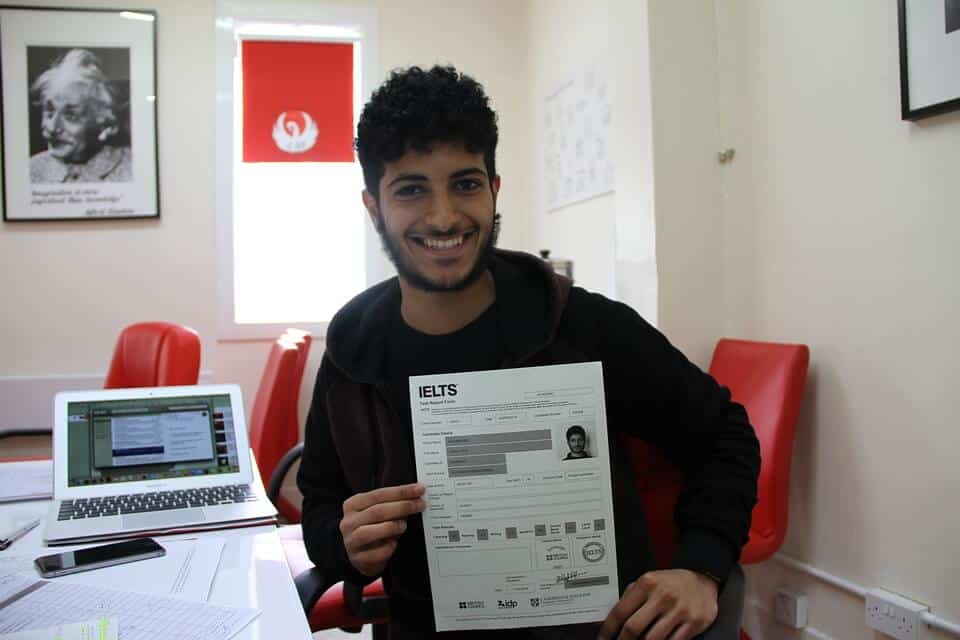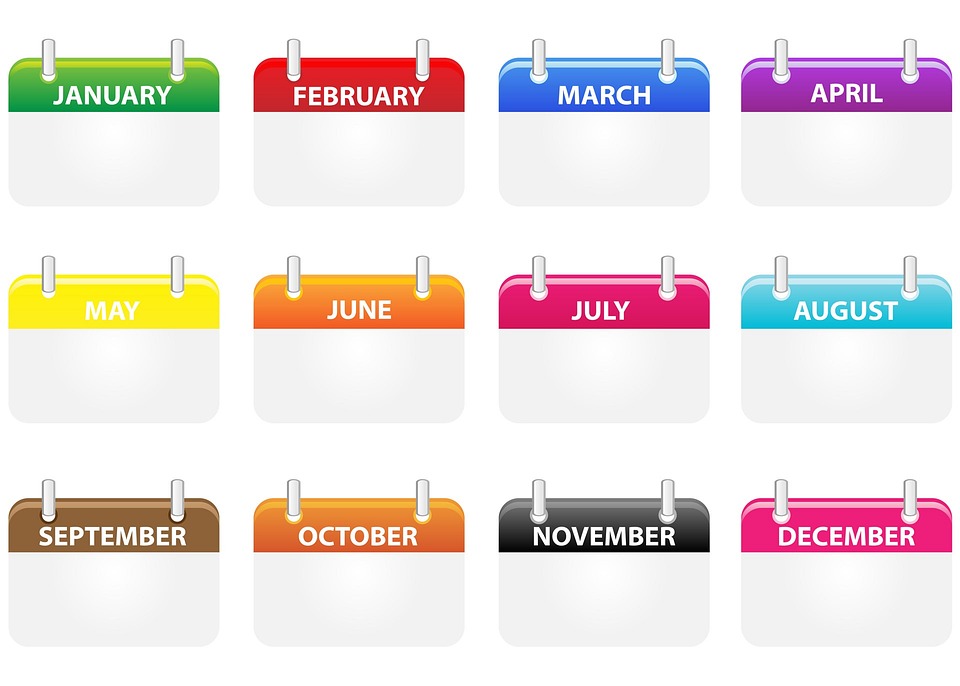Do you have plans of migrating abroad, or do you want to land that dream job of yours to that distant foreign company? If you’re currently planning the steps to take and checking the processes you need to undergo, then perhaps you have come across the IELTS exam. With plenty of information that describes this prestigious test, it’s natural to have different questions going in your mind. Things like, “Can I pass this test” or “What if I fail?”. Lucky for you, you can get an advantage by finding out which month is best for the IELTS exam.
 Some of the world’s dominating language assessment professionals prepared the IELTS examination. As designed by the British Council Organization, there are two IELTS tests available. First is the IELTS Academic that assesses whether your English language proficiency is acceptable for an academic atmosphere. It indicates aspects of academic language and evaluates whether you’re ready to start training or studying. The second one is IELTS General Training that tests your English language knowledge in a practical, everyday context. The tasks and tests reflect both workplace and social conditions.
Some of the world’s dominating language assessment professionals prepared the IELTS examination. As designed by the British Council Organization, there are two IELTS tests available. First is the IELTS Academic that assesses whether your English language proficiency is acceptable for an academic atmosphere. It indicates aspects of academic language and evaluates whether you’re ready to start training or studying. The second one is IELTS General Training that tests your English language knowledge in a practical, everyday context. The tasks and tests reflect both workplace and social conditions.
 When it comes to IELTS results, it is surprising to know that your score not only depends on your English knowledge, or the time you spent preparing for the test. Most of the time, it depends on the day you decided to take your test. So, which month is best for the IELTS exam, according to experts?
Notably, the organizers add new speaking topics to the test every four months. Typically, it happens in January, May, and September. As per credible resources online, half of the topics from the previous formats are repeated. However, it is impossible to identify which the changes in particular topics.
The good thing is, you have the chance to learn 99% of the IELTS topics if you schedule your test in April, August, ad December. Yes, you will have enough time to prepare for the big battle.
When it comes to IELTS results, it is surprising to know that your score not only depends on your English knowledge, or the time you spent preparing for the test. Most of the time, it depends on the day you decided to take your test. So, which month is best for the IELTS exam, according to experts?
Notably, the organizers add new speaking topics to the test every four months. Typically, it happens in January, May, and September. As per credible resources online, half of the topics from the previous formats are repeated. However, it is impossible to identify which the changes in particular topics.
The good thing is, you have the chance to learn 99% of the IELTS topics if you schedule your test in April, August, ad December. Yes, you will have enough time to prepare for the big battle.
 Part of their responsibility is to plan, prepare, and deliver the lessons you need. English trainers will help you improve your listening, speaking, reading, and writing skills via individual and group sessions. They will also check and assess your understanding with the lessons by giving you sample tests and examinations that are mostly similar to IELTS. You can also enroll yourself for IELTS preparation online courses that are only exclusive for IELTS examinees. With this process, you will gain more knowledge that will bring you more promising results.
Part of their responsibility is to plan, prepare, and deliver the lessons you need. English trainers will help you improve your listening, speaking, reading, and writing skills via individual and group sessions. They will also check and assess your understanding with the lessons by giving you sample tests and examinations that are mostly similar to IELTS. You can also enroll yourself for IELTS preparation online courses that are only exclusive for IELTS examinees. With this process, you will gain more knowledge that will bring you more promising results.
Top Things You Need to Know about the Notable IELTS Examination
Today, most countries require aspiring students, professionals, and migrants to take the International English Language Testing System (IELTS). It is the world’s most popular English language proficiency test. More than 10,000 organizations globally trust this test. IELTS is usually used for higher education and global migration, and it is specifically designed to assess the candidates’ English language ability. Some of the world’s dominating language assessment professionals prepared the IELTS examination. As designed by the British Council Organization, there are two IELTS tests available. First is the IELTS Academic that assesses whether your English language proficiency is acceptable for an academic atmosphere. It indicates aspects of academic language and evaluates whether you’re ready to start training or studying. The second one is IELTS General Training that tests your English language knowledge in a practical, everyday context. The tasks and tests reflect both workplace and social conditions.
Some of the world’s dominating language assessment professionals prepared the IELTS examination. As designed by the British Council Organization, there are two IELTS tests available. First is the IELTS Academic that assesses whether your English language proficiency is acceptable for an academic atmosphere. It indicates aspects of academic language and evaluates whether you’re ready to start training or studying. The second one is IELTS General Training that tests your English language knowledge in a practical, everyday context. The tasks and tests reflect both workplace and social conditions.
Which Month Is Best for the IELTS Exam? Here are the Expert’s Answers
Are you afraid that you may fail your IELTS exam? Essentially, there is no pass or fail. IELTS’s primary goal is to determine your current level in terms of using and comprehending the English language. It is not surprising that many organizations require an individual to have an idea, given that English is known as the universal language. Wherever you go in the world, there’s a high chance that you will come across people who speaks English. When it comes to IELTS results, it is surprising to know that your score not only depends on your English knowledge, or the time you spent preparing for the test. Most of the time, it depends on the day you decided to take your test. So, which month is best for the IELTS exam, according to experts?
Notably, the organizers add new speaking topics to the test every four months. Typically, it happens in January, May, and September. As per credible resources online, half of the topics from the previous formats are repeated. However, it is impossible to identify which the changes in particular topics.
The good thing is, you have the chance to learn 99% of the IELTS topics if you schedule your test in April, August, ad December. Yes, you will have enough time to prepare for the big battle.
When it comes to IELTS results, it is surprising to know that your score not only depends on your English knowledge, or the time you spent preparing for the test. Most of the time, it depends on the day you decided to take your test. So, which month is best for the IELTS exam, according to experts?
Notably, the organizers add new speaking topics to the test every four months. Typically, it happens in January, May, and September. As per credible resources online, half of the topics from the previous formats are repeated. However, it is impossible to identify which the changes in particular topics.
The good thing is, you have the chance to learn 99% of the IELTS topics if you schedule your test in April, August, ad December. Yes, you will have enough time to prepare for the big battle.
What You Need to Know to Be Able to Nail Your IELTS Exam
But of course, apart from choosing the most friendly- month for the IELTS examination, you should do everything you can to prepare. Here are some notes to keep in mind.-
Victory is only for the ready.
-
Enough knowledge, enough score.
 Part of their responsibility is to plan, prepare, and deliver the lessons you need. English trainers will help you improve your listening, speaking, reading, and writing skills via individual and group sessions. They will also check and assess your understanding with the lessons by giving you sample tests and examinations that are mostly similar to IELTS. You can also enroll yourself for IELTS preparation online courses that are only exclusive for IELTS examinees. With this process, you will gain more knowledge that will bring you more promising results.
Part of their responsibility is to plan, prepare, and deliver the lessons you need. English trainers will help you improve your listening, speaking, reading, and writing skills via individual and group sessions. They will also check and assess your understanding with the lessons by giving you sample tests and examinations that are mostly similar to IELTS. You can also enroll yourself for IELTS preparation online courses that are only exclusive for IELTS examinees. With this process, you will gain more knowledge that will bring you more promising results.
-
Greater skills, better results
-
Take time for assurance
-
Familiarity will save you
-
Confidence is the key

